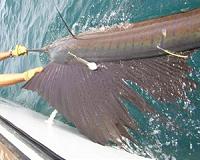 |
Aden, Yemen (AFP) Jan 4, 2011 Yemeni coast guards have retrieved the bodies of three of dozens of African migrants feared drowned off south Yemen, a Red Crescent official told AFP on Tuesday. "Three bodies were found Tuesday morning in the coastal region of Zubab" in Yemen's southern province of Taez, said Abdul Wahab al-Gharbani, secretary general of the Red Crescent in Taez. Gharbani, who said he was "surprised" at the number of victims the ministry of interior announced Monday, insisted that 46 people, mostly Ethiopians, were on board the boat which capsized near Bab al-Mandab strait that links the Red Sea and the Gulf of Aden. Five migrants who survived have been giving accounts of the accident to security officials at Bab al-Mandab, he said. Yemen's interior ministry said on Monday that "80 Africans, mostly Ethiopian, drowned after their two boats were capsized." "The accident was caused by high winds and a tsunami which capsized the two boats taking them towards the coast," the statement said, quoting the coast guard in the southern port city of Aden. But Gharbani said that only one boat had overturned. "We have no information about a similar incident and we are now following up with the organisation's (Red Crescent) international committee to search for those missing," he said. A Bab al-Mandab security official on Monday put the number of people missing at 35, confirming that only one boat overturned and that five passengers, whom he said are Ethiopians, had survived. Two Yemeni people smugglers also survived, he said. The official, who would not be named, said the accident was caused by engine damage. Each year tens of thousands of Ethiopians and Somalis make the perilous crossing to Yemen in the hope of escaping the economic deprivation, persecution and conflicts of their home countries. Many die on board often overcrowded and rotten small boats, while others, already weakened by long journeys from the hinterland to the coast, die at the hands of ruthless smugglers. The migrants generally slip by boat into south Yemen, itself one of the world's poorest countries, before heading towards the border with oil-rich Saudi Arabia. The United Nations High Commissioner for Refugees said last April that the exodus of Somalis across the Gulf of Aden had slowed dramatically since the start of 2010, despite recurring violence in Somalia.
Share This Article With Planet Earth
Related Links Water News - Science, Technology and Politics
 Growing Hypoxic Zones Reduce Habitat For Billfish And Tuna
Growing Hypoxic Zones Reduce Habitat For Billfish And TunaWashington DC (SPX) Dec 31, 2010 Billfish and tuna, important commercial and recreational fish species, may be more vulnerable to fishing pressure because of shrinking habitat, according to a new study published by scientists from NOAA, The Billfish Foundation, and University of Miami Rosenstiel School of Marine and Atmospheric Science. An expanding zone of low oxygen, known as a hypoxic zone, in the Atlantic Ocean is enc ... read more |
|
| The content herein, unless otherwise known to be public domain, are Copyright 1995-2010 - SpaceDaily. AFP and UPI Wire Stories are copyright Agence France-Presse and United Press International. ESA Portal Reports are copyright European Space Agency. All NASA sourced material is public domain. Additional copyrights may apply in whole or part to other bona fide parties. Advertising does not imply endorsement,agreement or approval of any opinions, statements or information provided by SpaceDaily on any Web page published or hosted by SpaceDaily. Privacy Statement |